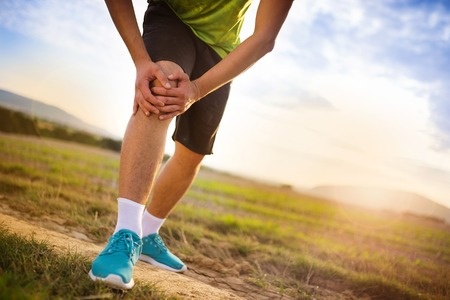When it comes to treating sports related injuries, it goes without saying that prevention is better than treatment. Not only for the betterment of your muscles and ligaments, but also your lifestyle.
Sports related injuries can lead to a potential loss of income — if the injury is severe enough to require time off work — as well as the inability to perform your normal daily activities, however there are a number of precautions you can take to stop you suffering such loss.
Here’s 5 tips to prevent sport injuries, because let’s face it, prevention is better than treatment.
Warm up/Stretch
If you ever watched a kids’ footy match on the weekend, you will notice that they are all made to warm up before they begin, but as adults sometimes we forget the importance of this fundamental step. Stretching before sport increases the body’s flexibility and allows joints to experience their full range of motion. Conversely, cold muscles, tendons and ligaments, are less flexible and therefore more prone to damage. Some simple stretches before sport can significantly reduce your chance of injury.
Keep hydrated
Plenty of water before, during and after playing sports, is essential if we want out bodies to perform at their best. Fluid is lost through sweat, and if it’s not replaced quickly enough, dehydration can occur (particularly in hot weather). Dehydration contributes to fatigue, which may make you more susceptible to cramps, affecting your game, and potentially your muscles. Whilst most cramps are short lived, a severe bout has the potential to cause damage to the muscle, requiring rehabilitation afterwards.
Check your equipment and environment
Many sports related injuries can be prevented through the use of correctly used or properly fitted equipment. What that is will depend on the particular sport you play, but it is helpful to get in the habit of checking you have everything you need, and that it is all in working order. Items to check include:
- Correctly fitted and appropriate footwear
- Mouth guard
- Helmet
- Any knee, wrist, elbow braces required
- Knee and shin guards
Be sure to also assess your playing environment. Is the ground wet or slippery? Is all protective padding on goal posts in tact? Is the safety netting torn or damaged? Are there any sharp/dangerous items, or holes on the playing field that may be an obstacle? While you may be unable to fix some of these at the time, being aware of them can help you avoid any injury they have the potential to cause.
Strap problem areas
If you’ve ever had significant ligament/tendon damage in the past, you will no doubt be keen to avoid it again, and in this case strapping is your best friend. Your physiotherapist can show you how and where to correctly apply strapping tape in order to protect previous injuries from reoccurring, and protect you from further ones.
Strapping also provides peace of mind for those nervous about getting back out on the field again, as it can reduce the reoccurrence of injury by as much as two-thirds.
If you do have any previous injuries, make sure that these are properly rehabilitated before recommencing your sport. Improperly healed traumas are more susceptible to further damage, which then prolongs the initial recovery time. Be guided by your physio as to when you can get back in the game and to what extent.
Check your game
Something that many forget to consider is technique for your sport. What actions does your sport require your body be able to do, and can you perform these correctly and safely?
Taking the time to know how to move in a way that does not cause undue stress on ankle, knee or other joints not only improves your sports performance, but helps you prevent unnecessary joint strain. Appropriate training prevents injury and is better for everyone.
*Note: if you’re a runner we have personalised running assessments currently available for beginners through to advanced to check and improve your running technique to prevent injury and improve performance. Contact us for more details
Sports related injuries are not fun for anyone, and the recovery time can be frustrating, lengthy and costly. Taking precautions to prevent injury is the easiest and safest way to make sure your life stays as you like it, and you play your best game possible.


